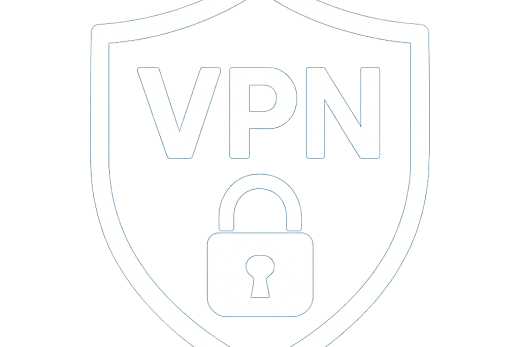Debian: The Universal Operating System
In the vast and diverse world of Linux, few distributions command the respect and widespread influence of Debian. Often hailed as “The Universal Operating System,” Debian is not just another Linux distro; it’s a foundational project, a philosophy, and a highly stable, secure, and reliable choice that underpins countless other distributions and powers everything from personal desktops to critical servers across the globe.
What is Debian? A Community-Driven Foundation
Debian was first announced in 1993 by Ian Murdock, who envisioned a truly open and community-driven Linux distribution, developed in the spirit of Linux and GNU. This vision led to the Debian Free Software Guidelines (DFSG), a set of principles that define what it means for software to be “free” and which have been hugely influential in the open-source movement.
Key characteristics that define Debian include:
- Open Source and Free: Debian is entirely free software. Its development is transparent, and its code is open for anyone to inspect, use, modify, and distribute.
- Community-Driven: It’s developed by a global network of volunteers. This distributed, democratic model ensures that Debian serves the needs of its users rather than commercial interests.
- Stability and Security: These are paramount. Debian’s development cycle is meticulous, with extensive testing before new “stable” releases. This makes it an incredibly reliable choice for mission-critical systems.
- Vast Software Repository: Debian boasts the largest collection of free software packages among Linux distributions, managed by its robust APT (Advanced Package Tool) system. This means you can easily install tens of thousands of applications and tools.
Debian’s Release Cycles: Stable, Testing, and Unstable
Debian manages its development through distinct “branches,” each serving a different purpose:
- Stable (Codename): This is the flagship branch, designed for rock-solid stability and security. Software packages in this branch have undergone rigorous testing, making it ideal for servers, production environments, and users who prioritize reliability over the absolute latest software versions. A new stable release typically occurs every two years, with security updates provided for about three years.
- Testing (Codename “bookworm” as of this writing): This is where packages destined for the next stable release are accumulated and thoroughly tested. It’s more current than stable but can still experience occasional bugs. It’s often chosen by users who want newer software without being on the bleeding edge of “unstable.”
- Unstable (Codename “Sid”): This is the continuously updated development branch where new packages and features first arrive. It’s for developers, experienced users, and those who want the very latest software, understanding that occasional breakage can occur.
Why Choose Debian?
Debian’s philosophy and technical prowess make it a compelling choice for many:
- Rock-Solid Stability: If you need a system that “just works” without unexpected issues, especially for servers or long-term projects, Debian Stable is an excellent choice.
- Security Focus: Its rigorous testing process and dedicated security team ensure prompt release of security updates.
- Foundation for Others: Many popular Linux distributions, including Ubuntu, Linux Mint, and Kali Linux, are based on Debian. Understanding Debian gives you a deeper insight into how these derivatives function.
- Hardware Compatibility: Debian supports a vast array of hardware architectures, from tiny embedded systems (like Raspberry Pi) to powerful mainframes.
- Flexibility: You can install Debian as a minimal base system and then build upon it, choosing your preferred desktop environment (GNOME, KDE, XFCE, LXQt, MATE, etc.) and applications, tailoring it precisely to your needs.
Common Uses of Debian
Given its versatility, Debian is used in a wide range of applications:
- Web Servers: Its stability and security make it a top choice for hosting websites and web applications.
- Development Machines: Developers appreciate its vast package repositories and stable environment.
- Personal Desktops: While sometimes perceived as more “technical,” Debian can be easily set up with popular desktop environments, offering a robust and customizable user experience.
- Embedded Systems: Its light footprint and wide architecture support make it suitable for various embedded devices.
- Cloud Computing: Many cloud instances run Debian or Debian-based distributions.
Example: Automating Debian Installation with a dd Script (For Advanced Users)
For advanced users and system administrators, automating the installation of operating systems on bare metal or virtual machines can be incredibly efficient. One method involves using dd combined with a network installer script.
Important Note: The following script is for advanced users and is used to reinstall or install Debian via network onto a server. Using dd commands incorrectly can lead to data loss, so proceed with extreme caution and ensure you understand what you’re doing. This particular script appears to be designed for server environments where you are specifically wiping and reinstalling an OS.
Here’s an example of such a command, as provided by the source:
Bash
bash <(wget --no-check-certificate -qO- 'https://www.moeelf.com/attachment/LinuxShell/InstallNET.sh') -d 12 -v 64 -a -p password -port 122
Explanation of parameters (based on common InstallNET.sh usage):
-
bash <(...): Executes the script downloaded from the URL. -
wget --no-check-certificate -qO- 'https://www.moeelf.com/attachment/LinuxShell/InstallNET.sh': Downloads theInstallNET.shscript from the specified URL without certificate checking (--no-check-certificate), quietly (-q), and outputs to stdout (-O-). -
-d 12: Specifies the Debian version to install (e.g.,12for Debian 12 “Bookworm”). -
-v 64: Specifies the architecture (e.g.,64for 64-bit). -
-a: Likely indicates automatic partitioning. -
-p password: Sets the root password to “password” (you should always change this to a strong, unique password). -
-port 122: Sets the SSH port to 122 after installation.
Source of this script and further details: For more context and detailed usage instructions for this specific script, please refer to the original source: https://www.moeelf.com/archives/293.html
Conclusion
Debian stands as a pillar of the open-source community, embodying the ideals of freedom, collaboration, and meticulous engineering. Whether you’re a seasoned system administrator seeking ultimate stability, a developer needing a flexible environment, or a curious user looking for a reliable and customizable operating system, Debian offers a robust and well-supported platform that truly lives up to its moniker as “The Universal Operating System.”




